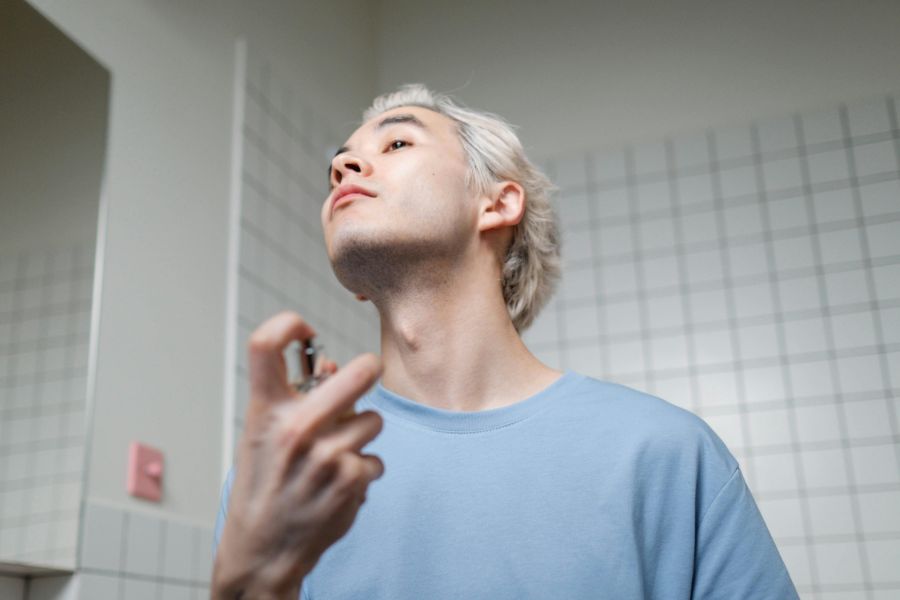Smellmaxxing sweet scents: Unilever uncovers Gen Z’s proclivity for fragrance
Key takeaways
- Unilever has found that Gen Z is driving a shift in the fragrance market, with scent becoming a key purchase driver.
- The "smellmaxxing" trend, where Gen Z layers scents to create a personalized aroma, is gaining momentum.
- Social media plays a significant role in Gen Z's fragrance choices.
Unilever has revealed that scent is a top purchase driver for Gen Z when buying personal care products. The young industry influencers seek sweet, emotion-provoking smells.
Approximately two-thirds (64%) of the demographic are willing to pay more for a product because they like how it smells, compared to 47% of adults overall. Unilever says its research signals a generational shift in beauty shoppers buying with their noses.
“For Gen Z, fragrance isn’t just about smelling good — it’s become part of how they express themselves, like fashion or music. They’re mixing, layering, and choosing scents that reflect who they are and what they care about,” says Vivek Sirohi, head of Unilever Fragrance House.
Unilever’s report identifies “smellmaxxing” as a rising trend for Gen Z. The name is inspired by the online trend of “looksmaxxing,” optimizing one’s appearance through various aesthetic means.
The fragrance offshoot refers to layering scents to create a personalized smell. According to the FMCG giant’s results, almost one in three of Gen Z (29%) are embracing viral trends such as “smellmaxxing.”
The fragrance market is worth £62 billion (US$84.6 billion), according to Unilever.
Sweet emotion
Unilever’s survey of 2,000 adults found that Gen Z prefer sweet scents like vanilla, strawberries, and cherry blossom. In contrast, millennials favor mint, and Gen X enjoys the smell of fresh laundry.
 Gen Z embraces personalized fragrance through the rising "smellmaxxing" trend. Traditional aromas such as cut grass and sandalwood appeal less to those aged 18-25.
Gen Z embraces personalized fragrance through the rising "smellmaxxing" trend. Traditional aromas such as cut grass and sandalwood appeal less to those aged 18-25.
The research found that eight in 10 Gen Zers choose products based on how the scent makes them feel. Forty-one percent of respondents indicated they “must” smell of fragrance wherever they go.
The convergence of smell and emotion is increasing in the fragrance sector. According to Unilver, 26% of Gen Z consumers say they like scents that make them feel more confident.
Additionally, 81% of Gen Zs are likely to try a beauty, personal care, or home care product with a nostalgic or memory-evoking fragrance.
dsm-firmenich recently unveiled EmotiOn Social Connection. The fragrance platform is rooted in neuroscientific research, tapping into scents’ interaction with the brain, to enhance human interaction and emotional closeness.
Earlier this year at In-Cosmetics Global 2025, leading fragrance creators told us how consumers expect functional benefits from fragrances that target specific emotions and support holistic well-being.
Social media and scent
Unilever reports that approximately one-third (34%) of Gen Zers regularly purchase beauty or personal care products inspired by online platforms, often weekly or more.
Over half (56%) of these consumers buy scented products without smelling them first, relying on social media recommendations.
“Social media plays a big role here — trends like ‘smellmaxxing’ show just how creative and bold they’re willing to be. That’s why we are investing into strengthening our ability to innovate faster, blending science, creativity and cultural insight to shape the next chapter in fragrance,” says Sirohi.
Unilever says its recent launch of Lynx Cherry Spritz, inspired by viral fine fragrance trends, is now one of Lynx’s top three global bestsellers.  Unilever’s fragrance innovation targets Gen Z with sweet, emotion-evoking scents.
Unilever’s fragrance innovation targets Gen Z with sweet, emotion-evoking scents.
Beyond the body
Unilever also highlights that laundry, a category historically focused on traditional scent profiles, is expanding to target Gen Zs with “sophisticated and unexpected” fragrances. The demographic also wants long-lasting solutions.
For example, the company names its Persil Wonder Wash, inspired by fine fragrance with red berries, vanilla, tonka, and amber notes. It reports that the product over-indexes with Gen Z.
“Compared to older generations who tend to stick with familiar, comforting scents, Gen Z is more experimental. Getting a deeper understanding of how different age groups connect with fragrance helps us make products that speak to them, or that strike a nostalgic chord. It’s not just about following trends — it’s about staying in tune with what people want,” says Sirohi.
In response to the evolution of fragrance, Unilever invested £80 million (US$109.19 million) in an in-house fragrance capability, collaborating with perfumers to craft scents that reflect Gen Z’s evolving tastes.
The first product to emerge from the investment is Dove’s limited-edition Garden Tea Party beauty bar and body wash, featuring trending rose berry scents.
The company also opened a fragrance lab in Connecticut, US, to speed up scent development by combining digital tools, AI, and consumer insights. The lab aims to boost product appeal by developing personalized, trend-driven fragrances for North American consumers.













